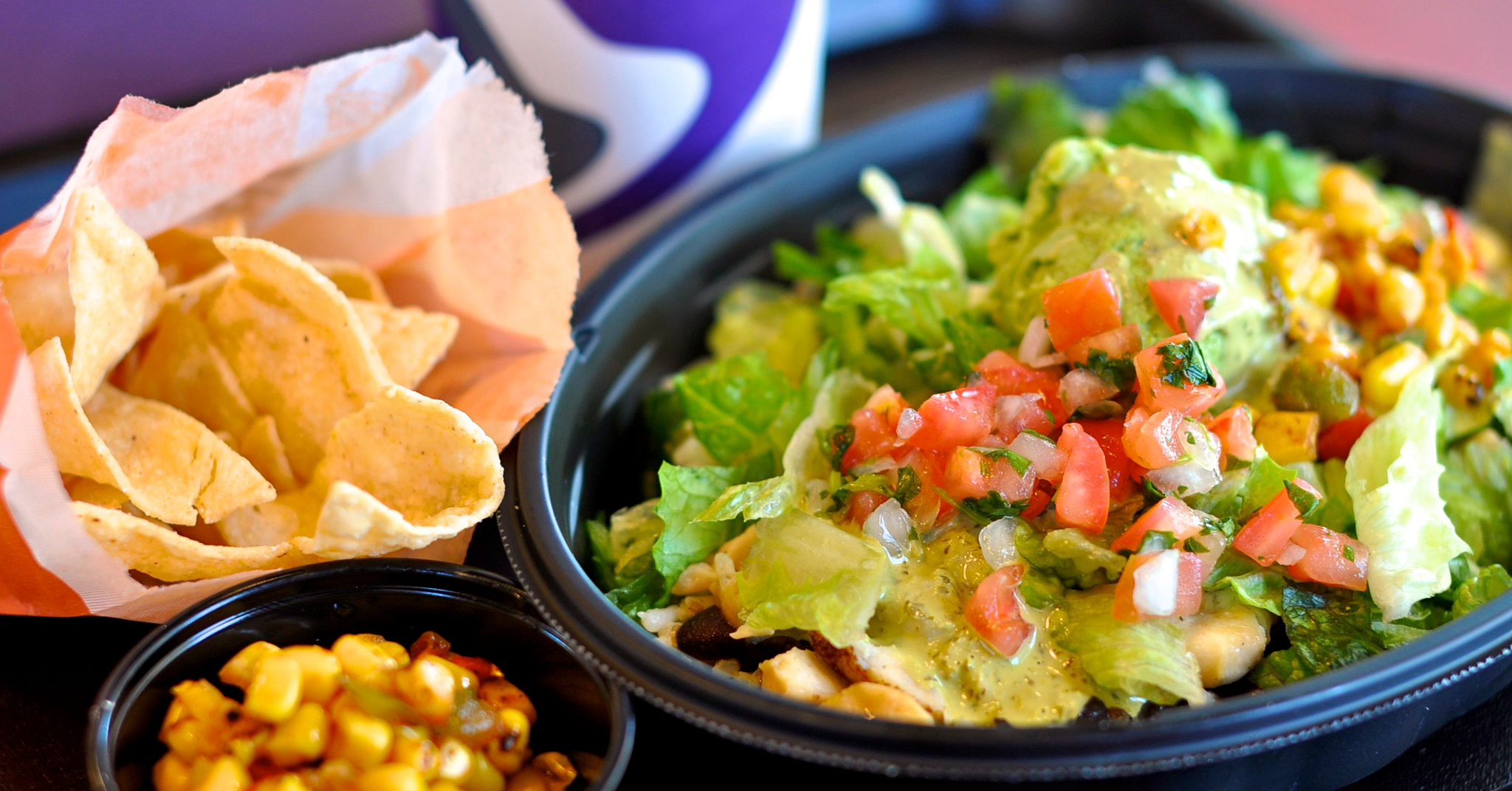Fast-food chain will ban PFAS, phthalates, and BPA by 2025; public health advocates urge the company to move more quickly and end the use of vinyl food handling gloves
WASHINGTON, D.C. — Fast-food chain Taco Bell has announced new global sustainable packaging commitments, including banning the toxic chemicals per- and polyfluoroalkyl substances (PFAS), phthalates, and BPA from “consumer-facing packaging.” The company stated: “By 2025, in Taco Bell restaurants across the globe, the brand aims to make all consumer-facing packaging recyclable, compostable or reusable… PFAS, Phthalates and BPA will be removed from all consumer-facing packaging materials.” The company has yet to commit to addressing these chemicals in other food contact materials.
Taco Bell is the fourth largest fast-food chain in the United States, and the largest server of burritos and tacos, with more $10 billion in sales in 2018 at more than 7,000 locations. Taco Bell is a subsidiary of Yum! Brands, Inc., which also owns Pizza Hut and KFC, neither of which have made similar commitments.
Mike Schade, Mind the Store Campaign Director, said: “Taco Bell’s new commitment signals a growing market movement away from PFAS, phthalates, and BPA in food packaging. We appreciate Taco Bell taking these initial steps. However, five years is too long for their customers to continue to be exposed to these unnecessary toxic chemicals. We encourage Taco Bell to take the next step by setting a more aggressive public timeframe to phase out these chemicals, expand its phaseout of BPA to all bisphenols, and expand the commitment to other food contact materials. Other major fast-food chains should join them in driving toxic chemicals out of food packaging. And the other businesses that make up Yum! Brands, KFC and Pizza Hut, must also act.”
Mike Belliveau, Executive Director of Environmental Health Strategy Center, said: “We applaud Taco Bell’s leadership as the first fast-food restaurant to commit to more sustainable, toxic-free food packaging. Next up, they should end plastic pollution from disposable food handling gloves, which generate huge amounts of waste and are made from polyvinyl chloride, the most toxic plastic across its lifecycle. Taco Bell should follow the lead of Panera Bread and switch from vinyl to polyethylene gloves, which are highly recyclable and comparatively safer.”
Laurie Valeriano, Executive Director of Toxic-Free Future, said: “It’s great that Taco Bell is making a commitment to phase out PFAS from food packaging following bans that have been put in place in states like Washington. The trend to ban PFAS in food packaging is expected to continue and companies committing to safer alternatives and getting ahead of the curve now makes a lot of sense.”
PFAS, phthalates, and BPA can still be found in food contact materials used for packaging, processing, and preparation of meals. One study found that 38% of sandwich and burger wrappers were likely treated with PFAS. A report published by the Mind the Store campaign and Toxic-Free Future found the likely presence of PFAS in nearly two-thirds of take-out containers. Last year, a report by Ecology Center and Environmental Health Strategy Center found that 14% of vinyl (PVC) plastic disposable food handling gloves used at most fast-food restaurants contained phthalates, with such poor supply chain management that phthalates may be found in any vinyl glove.
This new announcement comes at a time when other top food retailers are increasingly adopting safer chemicals policies to reduce and eliminate harmful chemicals. Over the past year Panera Bread, Whole Foods Market, Trader Joe’s, Ahold Delhaize, Kroger, and Albertsons announced steps to reduce or eliminate certain toxic chemicals in food packaging.
Taco Bell’s new policy commitment follows less than two months after the release of the 2019 “Who’s Minding the Store?” Retailer Report Card, which benchmarks retailers on their safer chemicals policies and implementation programs. Taco Bell’s parent company, Yum! Brands, received grades of F in both 2019 and 2018. The company’s new commitment signals a notable improvement to its approach to addressing toxic chemicals and will help improve its score for 2020.
Meanwhile, state and local governments are moving to phase out classes of toxic chemicals, such as PFAS and phthalates, in favor of safer alternatives. Over the past two years, Washington and Maine have enacted phase-outs of PFAS in food packaging by January 1, 2022 or as soon as safer alternatives are available. Maine’s new law also prohibits the use of phthalates in food packaging and food handling gloves effective January 1, 2022. Denmark also recently announced a ban on PFAS in food packaging.
###
The national Mind the Store campaign challenges big retailers to eliminate toxic chemicals and replace them with safer alternatives.

